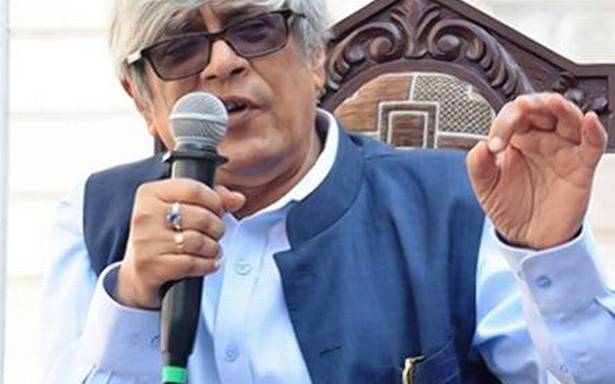The Prime Minister’s Economic Advisory Council chief hints tribunals letting down IBC; nudges 5-year old IBBI to ‘grow up’
Chairman of the Prime Minister’s Economic Advisory Council Bibek Debroy on Friday said complaints about the efficacy of Insolvency and Bankruptcy Code (IBC) processes largely pertain to the functioning of the National Corporate Law Tribunal (NCLT) and the Appellate Tribunal NCLAT.
Arguing that the IBC and Insolvency and Bankruptcy Board of India (IBBI) are unique compared to similar mechanisms in other countries, Mr Debroy said: “Here is a regulator that doesn’t enforce its rules. We have NCLT and NCLAT – most of the time, (when) people complain about the process, it is about them.
“It’s just as well that I have less time, otherwise I would have said things about the NCLT and NCLAT which I should not say,” he remarked caustically, citing the paucity of time for his speech at the fifth annual day of Insolvency and Bankruptcy Board of India (IBBI). He had originally expected his talk to be 45 minutes but that had been reduced to 15 minutes as he had other engagements, Mr Debroy noted.
Backing the need for an insolvency resolution process, the PMEAC chief invoked Charles Dickens and recalled that all his books had some reference to debtor prisons of that era, because his own father had been in such a prison and that left a ‘deep impression’ on Dickens.
Underlining that ‘pre-modern’ insolvency legislations pertained to personal bankruptcy, Mr Debroy stressed that enterprises must be allowed to fail and shut down as economic evolution implies survival of the fittest.
“If we forcibly prevent this exit, we will certainly have survival of the fittest. Think of all the assorted central public sector enterprises that we are now trying to privatise. Many of them are loss-making, many have eroded their net worth…,” he noted.
“Enterprises will fail and should be allowed to fail. A failed enterprise should be allowed to exit. A failed enterprise does not mean an entrepreneur failing. If the enterprise is allowed to close down, the entrepreneur can move on,” he pointed out.
“Sometimes you have no option but to wind it down. Sometimes, you can restructure. And the process for all of this must be transparent, credible and strict. Unfortunately, before this, we didn’t have that and other countries have also evolved,” the PMEAC chief said, to show that India had not been too far behind the developed world in coping with insolvency resolution.
“The US (undertook insolvency reforms) in the 1970s, Britain in the 1980s, the EU in the 1990s. Compared to these countries that are normally considered far ahead of us, with 2016 as a benchmark (when the IBC was launched), we are not far behind,” Mr Debroy said.
‘Not easy to gauge IBC performance’
Terming the IBC and the IBBI ‘works in progress’, Mr Debroy said there have been amendments to the original law which make it difficult to gauge their impact ‘statistically’. Moreover, for one of its five years, the Code was kept in abeyance, he reminded.
“It’s almost as if I am trying to assess the progress of a child who has just turned five, but what do I do if, for one year, the child hasn’t been able to go to an Anganwadi or a creche. There are no measurements for that period,” he pointed out.
Hinting that there was still a lot of work to be done for the Insolvency process to deliver better outcomes, Mr Debroy took the childhood analogy further to recall a quote ascribed to Chanakya for which he was yet to find a credible textual source.
“Nurture a son for the first five years, strike and punish him for the next ten years… When he attains the age of 16 years, treat him like a friend. I hope the allusion is sufficiently clear. The IBBI has survived as an infant and has also survived as an under-five child. The time has also arrived to strike and punish it within reason,” he said.
“The IBC and IBBI has made it easier to exit a failed business, though it can certainly make it easier still. The child has survived and grown, and as far as I can tell, it is not under-weight nor below the average height. There is no stunting… but it is also time for the child to go and develop into an adult. The rest of us will do our best to make this happen by chastising you,” he remarked.
Source: Read Full Article
